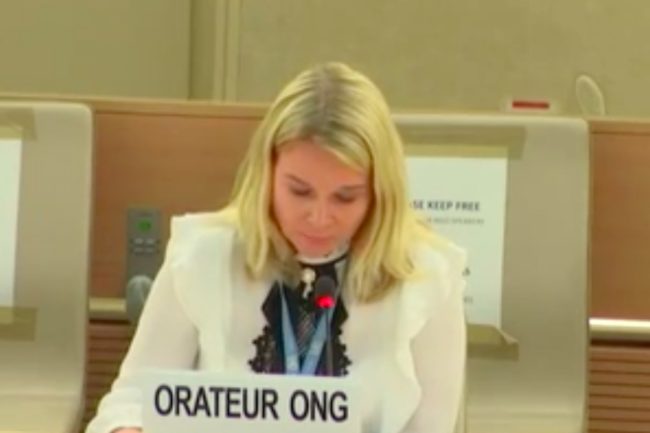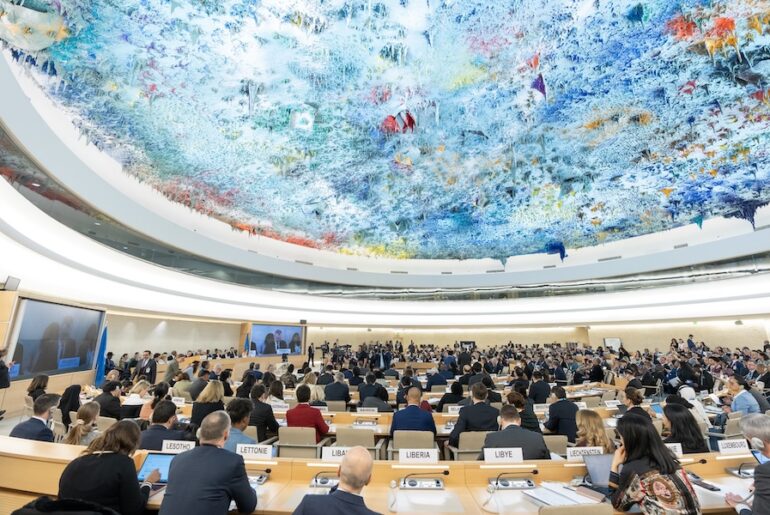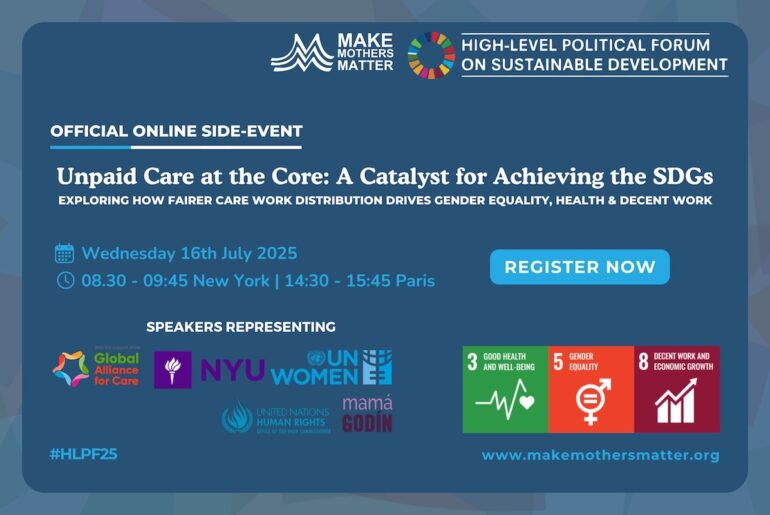Mother’s health and socio-economic circumstances greatly impact child development
06.03.20
UN Geneva, Human Rights Council - MMM drew attention to the impact that a mother’s own mental health and socio-economic status, including her level of education, can have on her children's mental health and their future.

MMM took part in the general debate that followed the presentation of the report of the UN Special Representative on Violence against Children. Focussing on the impact of violence on children’s mental health, the report was presented during the 43rd session of the Human Rights Council. The following statement was delivered by our representative Karen Thorsen.
MMM Oral Statement – Item 3 General Debate
The report [of the Special Representative] rightly states that violence against mothers, including during pregnancy, has serious consequences for her children and their right to the highest attainable standard of mental health.
We draw attention to the impact that a mother’s own mental health and socio-economic status have on her child’s mental health.
Mothers with low socio-economic status have a tendency to bear children who are hyperactive and antisocial. A child whose mother suffers from depression has a higher risk of disruptive behaviour in preschool and problems interacting with their peers. Better-educated mothers, on the other hand, have a tendency to bear more mentally stable children; they are also more able to cope with their children’s mental problems.
The parental circumstances are crucial during childhood, especially for a mother, who remains the main educator and caregiver of her child. In particular, a mother’s education level has a long-lasting effect on her children.
MMM therefore calls on governments
- To recognize the impact of a mother’s mental health on her child and the child’s healthy development
- To invest in early childhood development and support parents through parental education and counseling, as well as adequate social protection.
Envisioning care as a common thread to global crises
29.07.24
UN New York - Our virtual HLPF side-event brought together experts to shed light on how the various global crises we face (in particular climate change and other environmental crises,
We call for multi-stakeholder approach to recognise and support unpaid care work
21.07.24
UN New York - Participating in the meeting of the UN Economic and Social Council (ECOSOC) on care and support systems, MMM reaffirmed the principle of co-responsibility, which should underpin
The New EU Gender Equality Roadmap : A Call for Inclusion of Mothers
04.03.25
The European Commission’s initiative on a new Gender Equality Roadmap post-2025, marks a significant step forward in addressing gender disparities across the European Union. Make Mothers Matter (MMM








